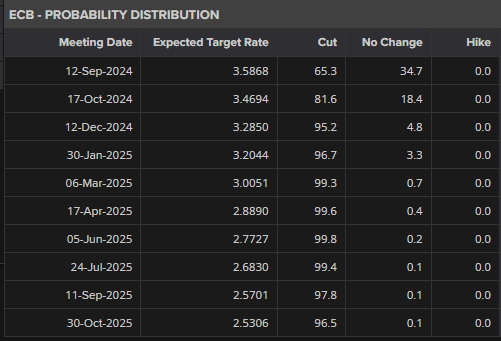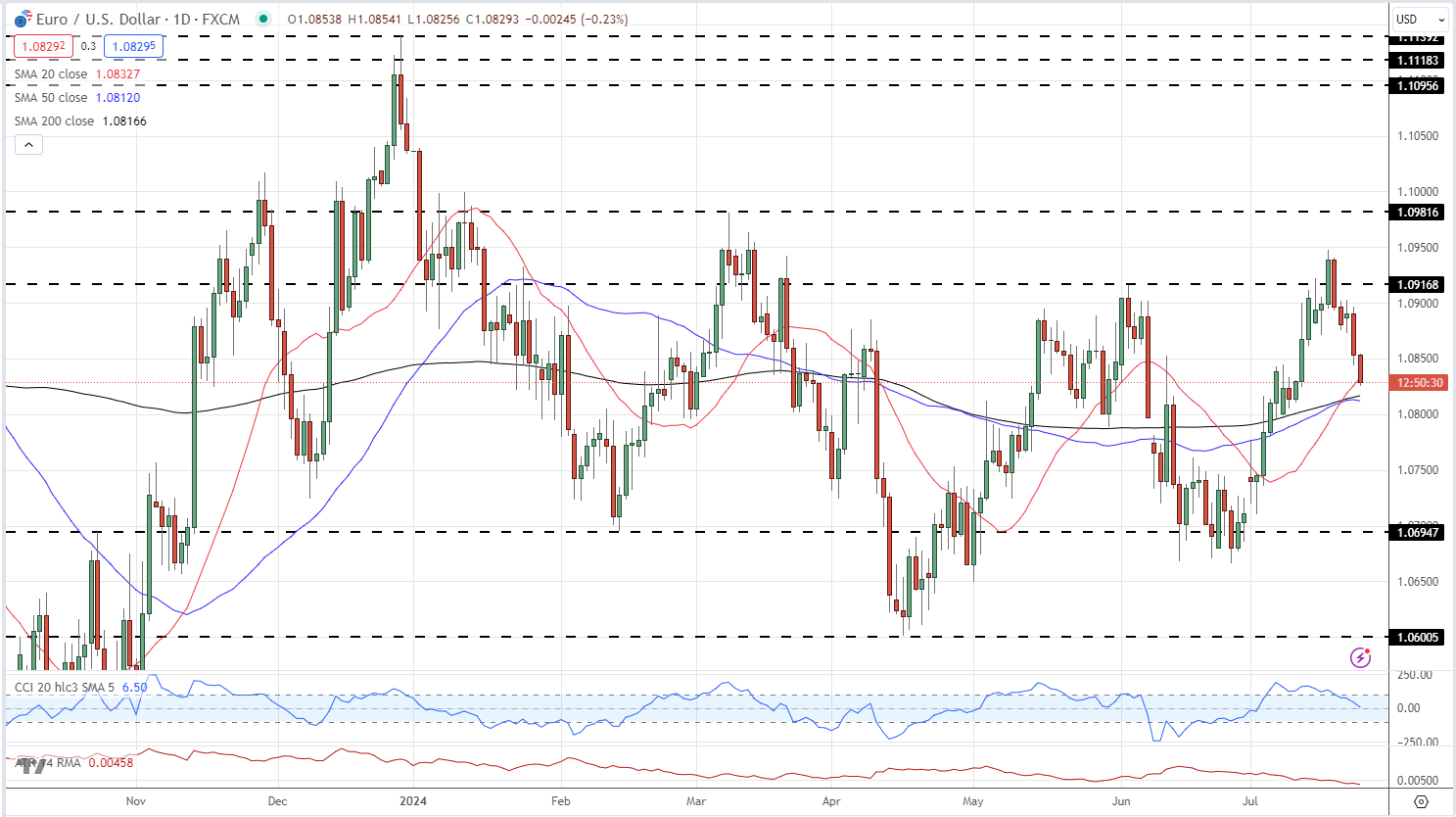Euro (EUR/USD) Weakens After German PMIs Disappoint, Rate Cut Expectations Rise
- German PMIs miss forecasts, manufacturing sector weakens further.
- Euro slips lower as rate cut expectations increase.
For all high-importance data releases and events, see the

According to the latest HCOB flash PMIs, ‘Germany’s private sector economy slipped back into contraction at the start of the third quarter, weighed down by a worsening performance across the country’s manufacturing sector…there was also a further weakening of the labour market amid a broad-based decrease in employment.’
Commenting on the data, Dr. Cyrus de la Rubia, Chief Economist at Hamburg Commercial Bank (HCOB), said: ‘This looks like a serious problem. Germany’s economy fell back into contraction territory, dragged down by a steep and dramatic fall in manufacturing output. The hope that this sector could benefit from a better global economic climate is vanishing into thin air. With the composite PMI now below 50, our GDP Nowcast predicts that economic output will shrink by 0.4% in the third quarter compared to the second quarter. While it is still early days and many data points are yet to come, the second half of the year is starting on a very weak note.’
ECB rate cut expectations moved higher after the data release, with expectations for a September rate cut increasing to just over 65%. If there is no move in September, then a cut at the October 17 meeting is fully priced in. Financial markets are also suggesting another 25 basis point cut at the December meeting.
ECB Interest Rate Probabilities

EUR/USD is slipping lower and is heading towards a cluster of simple moving averages sitting between 1.0812 and 1.0833, and these will need to hold to protect 1.0800. Below here, a group of recent lows around 1.0668 comes into view. As things stand, it looks unlikely that EUR/ USD will test 1.0900 or above in the short term.
EUR/USD Daily Price Chart

Retail trader data shows 41.98% of traders are net-long with the ratio of traders short to long at 1.38 to 1.The number of traders net-long is 11.02% higher than yesterday and 28.80% higher from last week, while the number of traders net-short is 11.47% lower than yesterday and 16.15% lower from last week.
We typically take a contrarian view to crowd sentiment, and the fact traders are net-short suggests EUR/USD prices may continue to rise.
Yet traders are less net-short than yesterday and compared with last week. Recent changes in sentiment warn that the current EUR/USD price trend may soon reverse lower despite the fact traders remain net-short.

